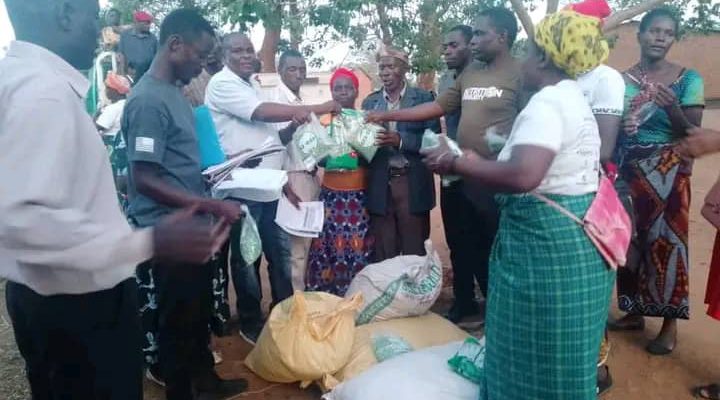
In a groundbreaking effort to combat hunger and improve education, Shine on Malawi has extended its Home Grown Project to 10 primary schools in the Mzalangwe Zone-Mzimba district.
The organization donated 50 bags of Green Organo Gold fertilizer and maize seeds, aiming to boost school feeding programs and teach sustainable farming practices.
Initially launched in 2003 with just five schools, the project now serves twice as many, marking a significant expansion in its mission to address food insecurity. The initiative is designed to ensure that students not only stay in school but also thrive through access to nutritious meals.
“We want to see a future where no child has to choose between hunger and education,” said Stalin Mughandira, Director of Shine on Malawi. “This project focuses on sustainability, food security, and better health for our students.”
The donations come at a critical time for schools in the zone, many of which lack feeding programs. Gertrude Gama, a Primary Education Advisor, stressed the importance of this intervention.
“Hungry children can’t learn effectively. These resources will ensure schools can grow their food, providing regular meals to students and reducing dropouts,” she explained. She called on the local community to embrace the initiative, emphasizing that cooperation and sustainable farming would be essential for its success.
The program’s potential ripple effects extend beyond classrooms. Group Village Headman Mtepani Hara urged leaders and schools to use the opportunity to increase agricultural productivity.
“By working together and adopting sustainable methods, we can secure a better future for our children. This partnership is a step forward in improving both education and livelihoods,” he said.
As the fields are prepared and seeds planted, the Home Grown Project symbolizes more than a harvest—it represents hope. With Shine on Malawi’s support, these schools are cultivating not just crops, but a brighter, more sustainable future for the entire community.














